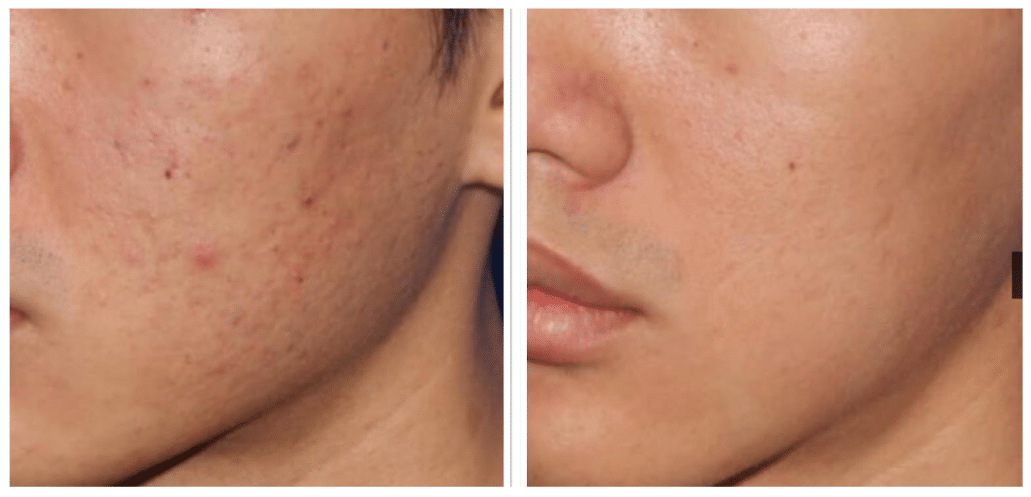Berkeley Acne Treatment Dermatologist in Berkeley, CA

Get Clearer, Radiant Skin with the Help of a Board-Certified Dermatologist
Acne is a very common skin condition that many people suffer from beyond their teenage years. It can be a source of insecurity, embarrassment, and can even hinder your self-confidence in the workplace. Fortunately, our board-certified dermatologist and her team at NorCal Dermatology Group have many effective skin treatments to address acne and acne scars, whether you have hormonal acne, whiteheads (pimples), blackheads, cysts, papules, or pustules.
While you can try to avoid mild acne with over-the-counter products, good personal skincare can be effective at curtailing acne. For example, you should wash your wash with a gentle cleanser twice per day and protect your skin from the sun. Always shower after strenuous physical activity, as oil and sweat on the skin can cause breakouts.
What Is Acne?
Acne occurs when hair follicles are clogged with oil and dead skin cells, and often it appears on the face, chest, back, or shoulders. While it is most common among teenagers experiencing hormonal fluctuations during puberty, it affects adults, as well. Depending on the severity of your acne, you have many treatment options available.

Acne can be worsened by:
- Hormones: Fluctuating hormones, especially in female patients, can cause acne.
- Certain medications: Corticosteroids or testosterone can cause flareups.
- Contact with oily substances: Your acne may develop or worsen by contact with lotions not intended for facial use. Look for oil-free, noncomedogenic skin creams and cosmetics.
- Stress can make acne worse, but it doesn’t cause acne.
When to See a Doctor for Acne Treatment
If self-care remedies are ineffective, you may want to see your doctor for stronger, prescribed topical or oral medication to control your acne. Acne is best treated by a team that is led by board-certified dermatologists. Dermatologists are skin specialists who can help with excess oil production and bacteria, or excess activity of hormones such as androgens that cause acne flareups.
Our doctors may recommend topical prescription medicines for acne, such as retinoids, antibiotic creams, salicylic acid, azelaic acid, or dapsone. Oral medications used to control acne include antibiotics like tetracycline, birth control pills, anti-androgen agents, or Isotretinoin (known by the brand name Accutane). You may also want to look into other treatments, such as lasers, chemical peels, extractions, or steroid injections.
Gives us a call to learn more about how we can treat your acne or acne scars in Berkeley or contacting us online to schedule a consultation.

